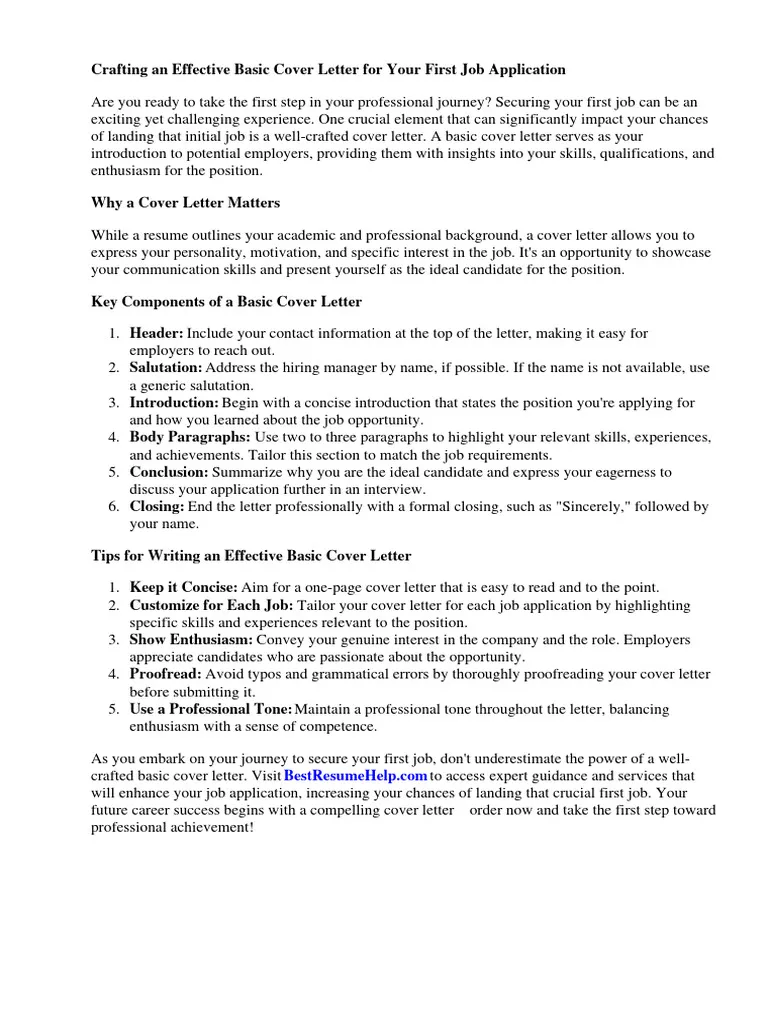Cover Letter Examples First Job 7 Tips
Landing your first job can feel daunting, especially when it comes to crafting the perfect cover letter. A well-written cover letter is your first chance to impress a potential employer and stand out from the crowd. This guide offers practical cover letter examples for your first job, along with essential tips to help you create a compelling application. We’ll cover everything from the basic structure to specific examples tailored to different situations, ensuring you make a memorable impression. Understanding the nuances of a cover letter is key to showcasing your potential and securing that all-important interview. These examples are designed to give you a head start, providing inspiration and a solid foundation for your job application. Let’s dive into how to create a cover letter that gets you noticed.
Understanding the Purpose of a Cover Letter
The primary purpose of a cover letter is to introduce you and your resume to a potential employer and articulate why you are a good fit for the position. Think of it as your personal sales pitch. Unlike your resume, which is a factual summary of your skills and experience, the cover letter allows you to express your personality, passion, and enthusiasm for the role. It’s your opportunity to connect with the hiring manager on a personal level and highlight the qualities that make you unique. A well-crafted cover letter demonstrates your communication skills, attention to detail, and genuine interest in the company and the specific job. This is where you can explain any gaps in your experience, elaborate on relevant coursework, and show how your skills align with the employer’s needs and company culture. Make your cover letter a reflection of your unique perspective and qualifications.
How Cover Letters Help You
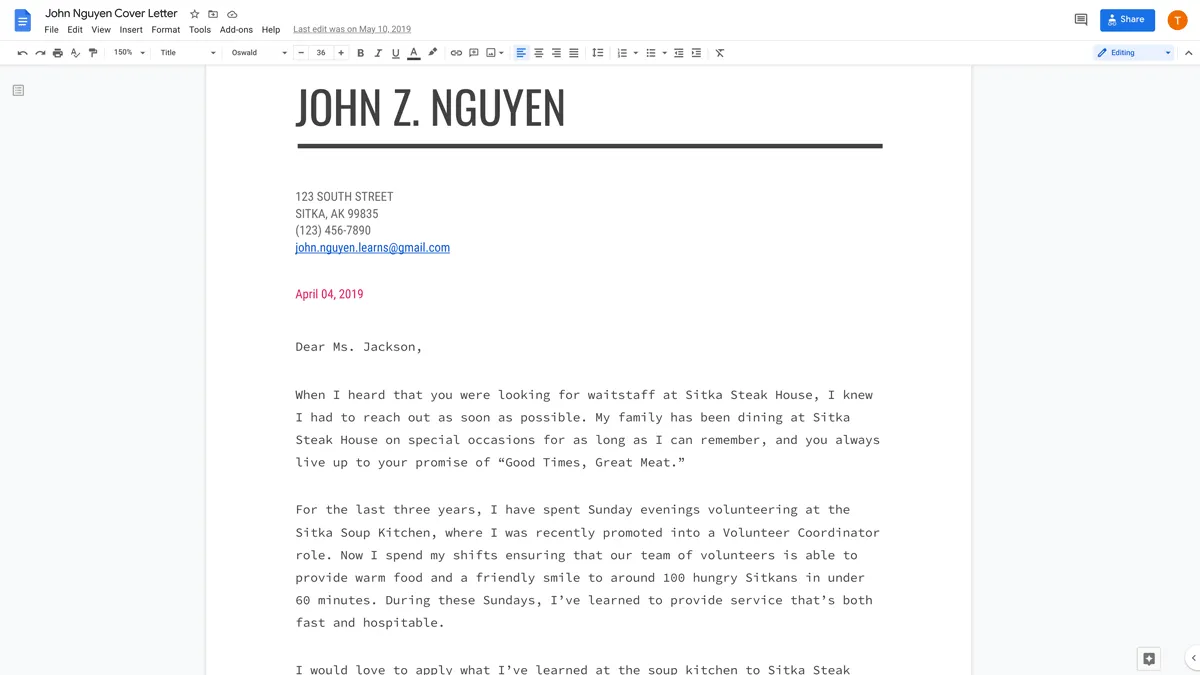
A cover letter can significantly boost your chances of getting hired. Firstly, it demonstrates your professionalism and your genuine interest in the job. Secondly, it provides an opportunity to expand on your resume, allowing you to explain how your skills and experiences directly relate to the job requirements. This is especially important for those with limited work experience. Thirdly, it helps you stand out from other applicants by showcasing your personality, enthusiasm, and communication skills. The cover letter offers a space to personalize your application and show that you understand the company’s mission and values. It proves that you are not just sending out a generic application, but have taken the time to research the company and tailor your pitch to their specific needs. This targeted approach makes you a stronger candidate and increases your chances of landing an interview.
Key Sections for First Job Cover Letters
A cover letter should follow a standard format to ensure clarity and professionalism. Begin with your contact information, followed by the date and the employer’s contact information. The body of the letter should consist of three to four paragraphs. The first paragraph should state the position you are applying for and how you learned about the opportunity. The following paragraphs should highlight your relevant skills and experience, demonstrate your enthusiasm for the role, and explain why you are a good fit for the company. End with a strong closing paragraph that reiterates your interest and includes a call to action, such as requesting an interview. The proper formatting is critical; it should include clear and concise language with a professional tone. Ensure you proofread your letter thoroughly to avoid any errors that might detract from your application.
Header Contact Information
Start your cover letter with your contact information, including your name, address, phone number, and email address. This should be at the top of the page. Following this, include the date and the hiring manager’s contact information, if available. If you are sending a digital cover letter, ensure your email address is professional. It’s a small detail, but it can make a big difference. Make sure that your name is easily identifiable, and your contact information is up-to-date. This will make it easy for the hiring manager to reach you if they are interested in your application. The header provides a quick reference point for the hiring manager and establishes a professional tone from the start. It’s important to double-check all the contact information to ensure there are no typos and that all details are accurate.
Greeting Addressing the Hiring Manager
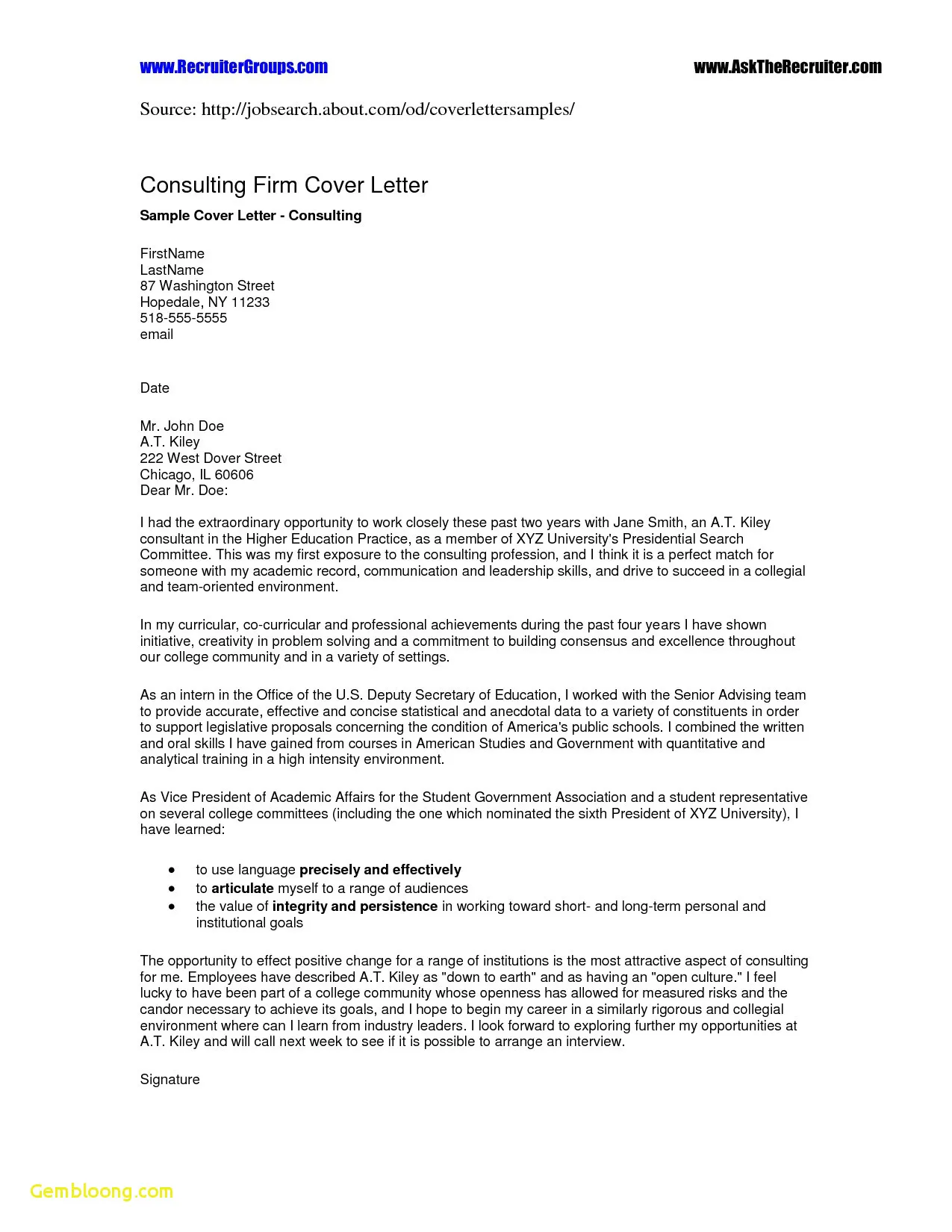
Always address the hiring manager by name if possible. This shows you’ve done your research and taken the time to personalize your application. If you can’t find the name of the hiring manager, use a general greeting like “Dear Hiring Manager” or “Dear [Company Name] Hiring Team.” Avoid generic greetings like “To Whom It May Concern,” which can make your letter seem impersonal. Researching the hiring manager’s name also makes the cover letter appear more genuine. It shows that you’ve considered the person you are contacting. This can be done by checking the job listing, the company website, or LinkedIn. Knowing the hiring manager’s name and using it in the greeting can make your cover letter stand out from the crowd, and demonstrates that you’ve taken the extra step.
Body Paragraph 1 Expressing Interest
The first paragraph should immediately state the position you are applying for and where you found the job posting. Briefly explain why you are interested in the role and the company. Show enthusiasm and let the reader know that you are genuinely excited about the opportunity. This is your chance to make a strong first impression, so start with a compelling opening statement. For instance, you could mention a specific project or initiative by the company that excites you. Clearly state your intentions and express your genuine interest in the role. Keep it concise, and show you understand the company’s mission and values. This will immediately engage the reader and encourage them to continue reading the rest of your application. Make your opening paragraph count by showing you have done your research and are genuinely interested in the position.
Body Paragraph 2 Highlighting Skills
The second paragraph is where you highlight your relevant skills and experiences. Even if you have limited work experience, focus on transferable skills gained from school, volunteer work, or extracurricular activities. Identify skills that align with the job requirements and provide specific examples of how you’ve demonstrated those skills. Use action verbs to describe your accomplishments, such as “managed,” “coordinated,” “led,” or “achieved.” Quantify your achievements whenever possible. For instance, if you improved a process, mention how much time or resources you saved. By connecting your skills to the job requirements, you can demonstrate your potential to be successful in the role. Show how your skills and experiences make you a strong candidate, even if you have limited formal work experience.
Body Paragraph 3 Showcasing Enthusiasm
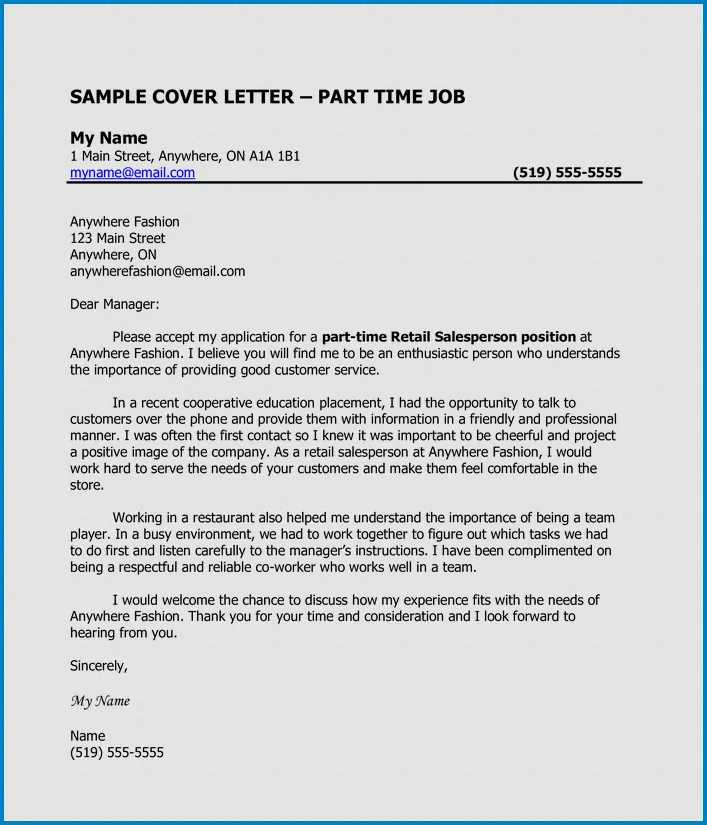
The third paragraph is where you can elaborate on why you are the ideal fit for the company. This is your chance to showcase your passion for the company’s mission, values, or culture. Tailor this section to demonstrate that you understand the company’s goals and how your skills and experience can contribute to its success. Show that you have done your homework and are genuinely interested in the company, not just any job. You should also mention what attracts you most about the company. You might reference a company’s recent project or a particular aspect of their work that resonates with you. By doing this, you demonstrate your genuine interest and understanding of the company, making your application much more impactful and memorable. The more specific you are, the more impressive your application will be.
Closing Call to Action
Conclude your cover letter with a strong closing paragraph that reiterates your interest in the position and includes a call to action. Express your eagerness to discuss your qualifications further in an interview. Thank the hiring manager for their time and consideration. Provide your contact information again for convenience. A good call to action could be something like, “I am eager to discuss how my skills and experiences can benefit your team, and I welcome the opportunity to interview for this position.” By including this, you are making it easy for the hiring manager to know the next steps and shows your confidence and enthusiasm. A strong closing paragraph leaves a positive lasting impression and encourages the employer to take action.
Tips for Writing a Great Cover Letter
Writing a great cover letter takes more than just filling out a template. It requires careful planning, research, and attention to detail. Several key steps can significantly increase your chances of success. This section outlines practical tips to help you create a standout cover letter. Make sure your cover letter aligns with the job posting, and it should present a coherent and compelling story of your capabilities and ambitions. By following these tips, you can transform a standard letter into a powerful tool that helps you land your first job.
Researching the Company
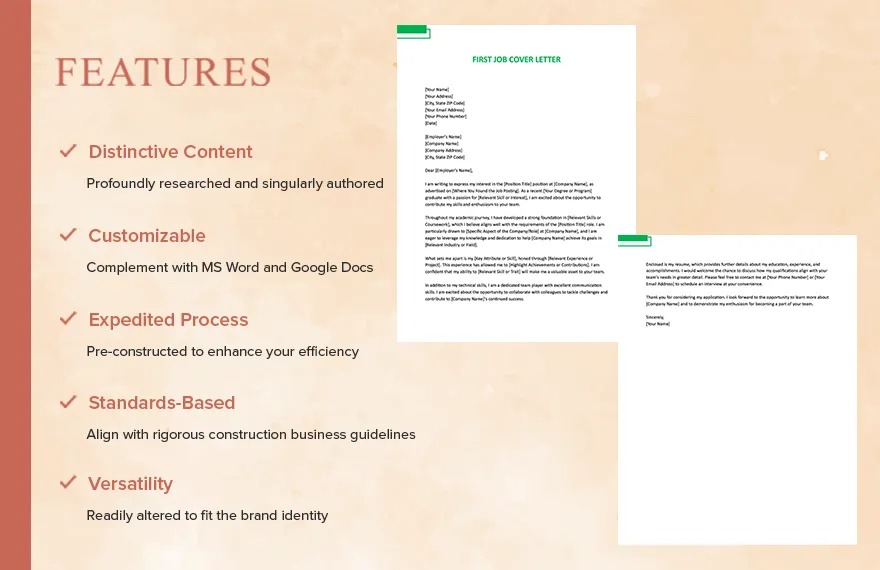
Before writing your cover letter, thoroughly research the company and the specific job you are applying for. Understanding the company’s mission, values, and recent projects will allow you to tailor your cover letter to their needs and show that you are genuinely interested in the position. Visit the company’s website, social media profiles, and recent press releases. Identify their key initiatives and any challenges they may be facing. If possible, also research the hiring manager or the team you’ll be working with. Demonstrating your knowledge of the company will make your application more compelling and make you stand out from other applicants. This personalized approach shows that you’ve put in the effort to understand their business and its unique challenges.
Tailoring Your Cover Letter
Avoid using a generic cover letter. Customize each cover letter to match the specific job requirements and the company’s culture. Review the job description carefully and identify the key skills and qualifications the employer is looking for. Then, highlight your relevant skills and experiences in your cover letter, providing specific examples to demonstrate how you meet those requirements. Customize the tone and language to align with the company’s brand and values. Show that you understand the company’s goals and how you can contribute to their success. Personalizing your cover letter is key to demonstrating that you are a strong match for the role, greatly increasing your chances of being selected for an interview.
Highlighting Transferable Skills
When applying for your first job, you might lack direct work experience. That’s why it’s essential to emphasize your transferable skills – skills gained from previous experiences like education, volunteer work, extracurricular activities, or part-time jobs. Focus on skills such as communication, teamwork, problem-solving, time management, and organization. Provide examples of how you have demonstrated these skills in other settings. For instance, if you were the leader of a school project, discuss how you managed the team, delegated tasks, and ensured the project’s success. If you volunteered at an event, describe how you communicated with attendees, managed their queries, and provided support. Highlighting these transferable skills will help the employer see how you can apply those skills to the job.
Proofreading and Editing
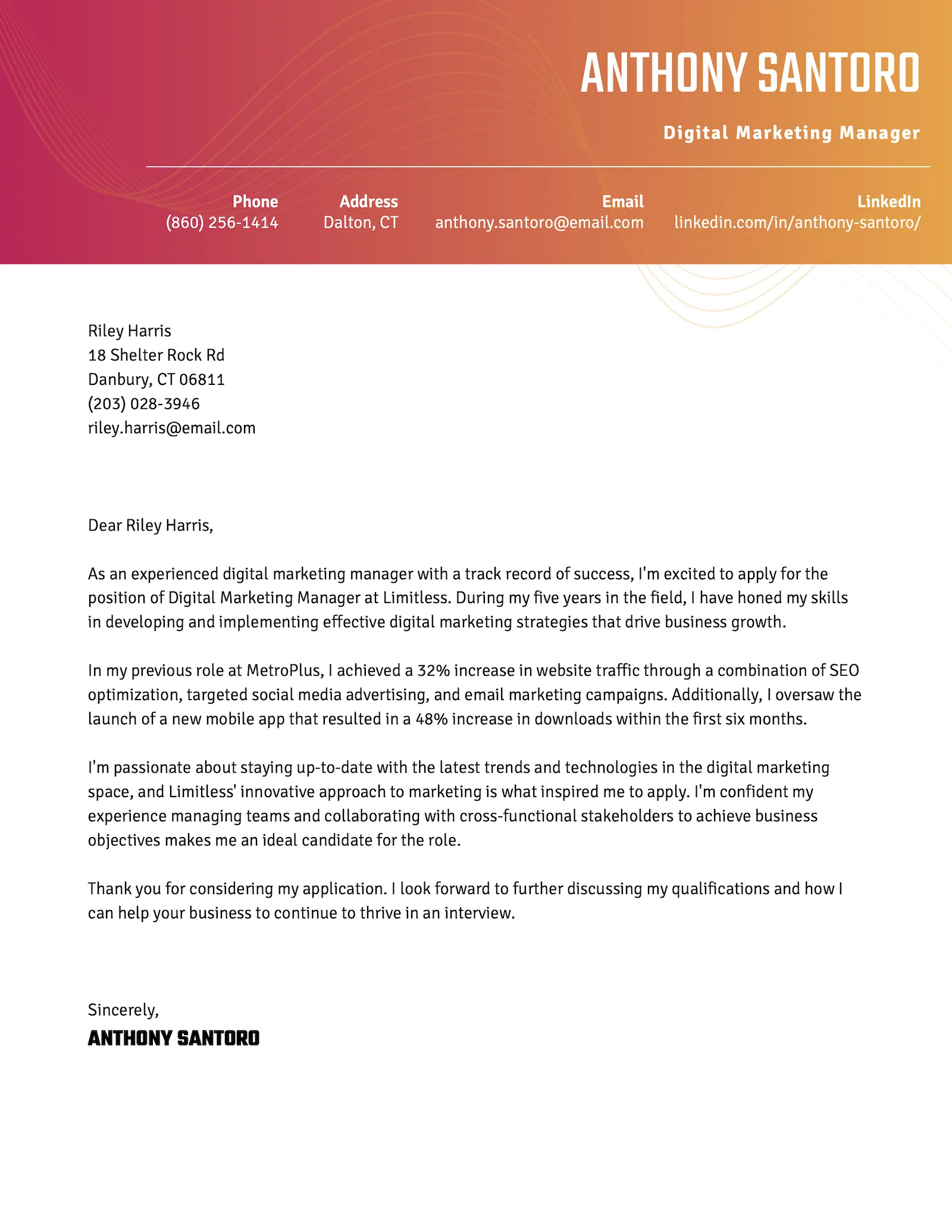
Before submitting your cover letter, proofread it carefully for any typos, grammatical errors, or formatting inconsistencies. Errors can create a negative impression and undermine your credibility. Take your time to review every word and sentence. Read it aloud to catch any awkward phrasing or unclear sentences. Ask a friend, family member, or career counselor to review your cover letter as well. Sometimes a fresh pair of eyes can spot errors you might have missed. Ensure the formatting is consistent throughout the document, and that the font and spacing are professional. A polished cover letter demonstrates your attention to detail, making a positive impact on the hiring manager.
Examples of Cover Letters for First Jobs
To give you a better understanding of how to apply these tips, here are some example cover letters tailored to different scenarios for first-time job seekers. These cover letter examples highlight how to effectively showcase your skills and enthusiasm, even when you have limited work experience. These cover letters can serve as a model for your own, helping you create a compelling application that will grab the hiring manager’s attention.
Example 1 No Experience
Dear Hiring Manager, I am writing to express my keen interest in the [Job Title] position at [Company Name], as advertised on [Platform]. While I am a recent graduate with no direct work experience, I am confident that my skills and enthusiasm align perfectly with the requirements of this role. During my studies at [University Name], I developed strong skills in [relevant skills], as demonstrated by my participation in [relevant projects or activities]. For example, in [project name], I successfully [achieved result], which required me to effectively manage [tasks and skills]. I am particularly drawn to [Company Name] because of [specific reasons]. I am eager to apply my skills and contribute to your team’s success. I am available for an interview at your earliest convenience. Thank you for considering my application. Sincerely, [Your Name]
Example 2 Part-Time Job
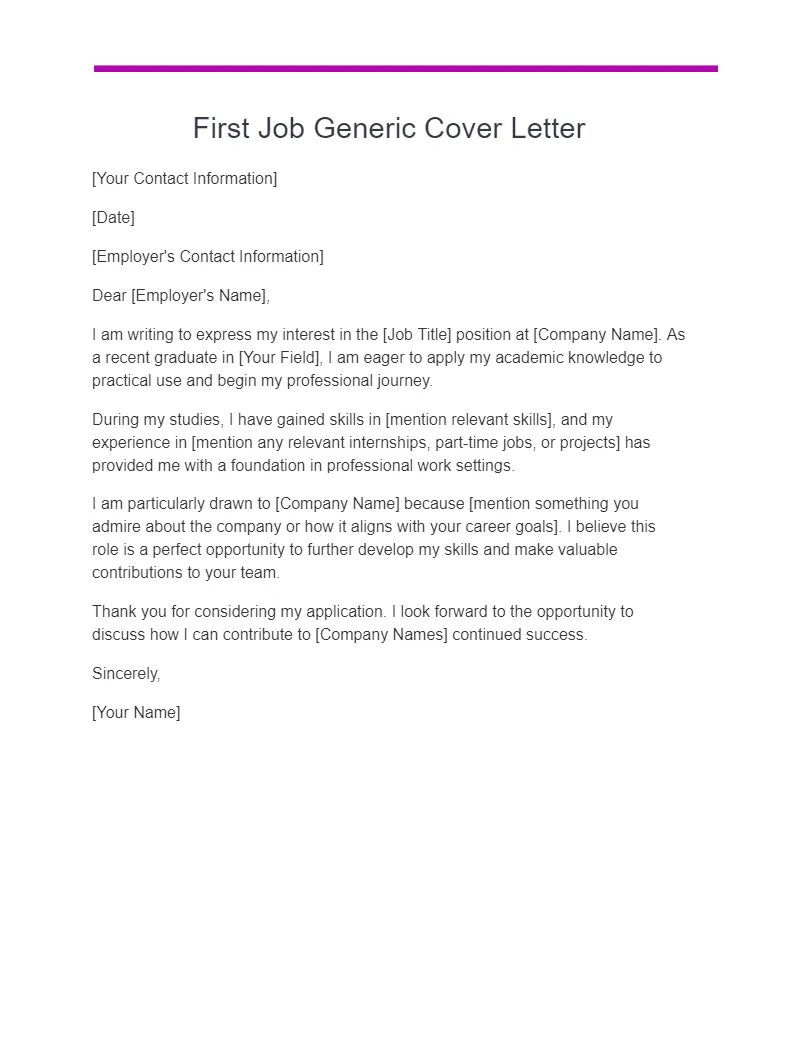
Dear Hiring Manager, I am writing to apply for the [Job Title] position at [Company Name]. I have part-time work experience at [Previous Job]. While I was employed, I was responsible for [Job duties]. These experiences allowed me to develop valuable skills in [relevant skills]. I am very interested in the [Company Name]’s mission, as stated on your website, particularly your focus on [specific project or value]. I am confident that my customer service skills and enthusiasm make me a good fit for your team. I am available to work [number] hours per week and look forward to discussing my qualifications further. Thank you for your time and consideration. Sincerely, [Your Name]
Example 3 Internship
Dear Hiring Manager, I am writing to express my interest in the [Job Title] internship position at [Company Name]. As a student pursuing a degree in [field of study], I am eager to gain practical experience in [area of interest]. During my coursework, I developed a strong understanding of [relevant skills]. Furthermore, I participated in [projects or activities], where I honed my abilities in [skills]. I am excited about the opportunity to apply my knowledge and learn from professionals in a real-world setting. I am particularly drawn to [Company Name] because of [specific reasons]. I am a highly motivated and dedicated individual with a strong work ethic. I am available to start on [date] and look forward to contributing to your team. Thank you for your time and consideration. Sincerely, [Your Name]
Mistakes to Avoid in Your First Job Cover Letter
Avoiding common mistakes can greatly enhance the effectiveness of your cover letter. By taking the time to understand the pitfalls, you can ensure that your application leaves a positive impression on potential employers. This section provides insights into the most common mistakes job seekers make and how you can avoid them.
Generic Cover Letters
One of the most common mistakes is sending a generic cover letter that is not tailored to the specific job or company. Such letters often lack details that demonstrate genuine interest in the opportunity and make your application feel impersonal. Always customize your cover letter for each job application. Research the company and the role, highlighting your skills and experiences relevant to the job description. Make sure your letter reflects your understanding of the company’s mission and values. Tailoring your cover letter demonstrates your commitment and willingness to put in the extra effort. This personalization makes your application stand out and shows you’re not just sending out a mass email.
Typos and Grammatical Errors
Typos and grammatical errors can significantly detract from your credibility and make your application seem unprofessional. These errors can be easily avoided by proofreading your cover letter multiple times. Use a spell checker, but also read the letter aloud to catch any awkward phrasing or unclear sentences. Asking a friend, family member, or career counselor to review your cover letter can also help catch any mistakes you might have missed. The effort you put into proofreading demonstrates your attention to detail and commitment to presenting a professional application. The cover letter is a reflection of your overall communication skills and attention to detail, so ensure it is free of errors.
Negative Language
Avoid using negative language or focusing on what you lack in your cover letter. This includes phrases such as “I don’t have experience” or “I may not be qualified, but…” Instead, focus on your skills and experiences and how they relate to the job requirements. Frame your qualifications positively. If you’re lacking direct experience, highlight your transferable skills and how they have prepared you for the role. Show that you are enthusiastic, motivated, and willing to learn. Positive and confident language helps you to create a strong first impression. Highlighting your strengths is much more effective than drawing attention to your weaknesses.
Conclusion Final Thoughts
Writing a cover letter for your first job may seem like a difficult task, but with the right approach, you can create a compelling application that effectively showcases your skills and enthusiasm. Remember to tailor your cover letter to each job, highlight your transferable skills, and proofread your work carefully. By using the examples and tips provided, you can create a cover letter that grabs the hiring manager’s attention and helps you land your first job. Focus on your strengths, be enthusiastic, and express your interest in the company. This will give you the best chance of making a positive impression and securing that all-important interview. Good luck with your job search!
